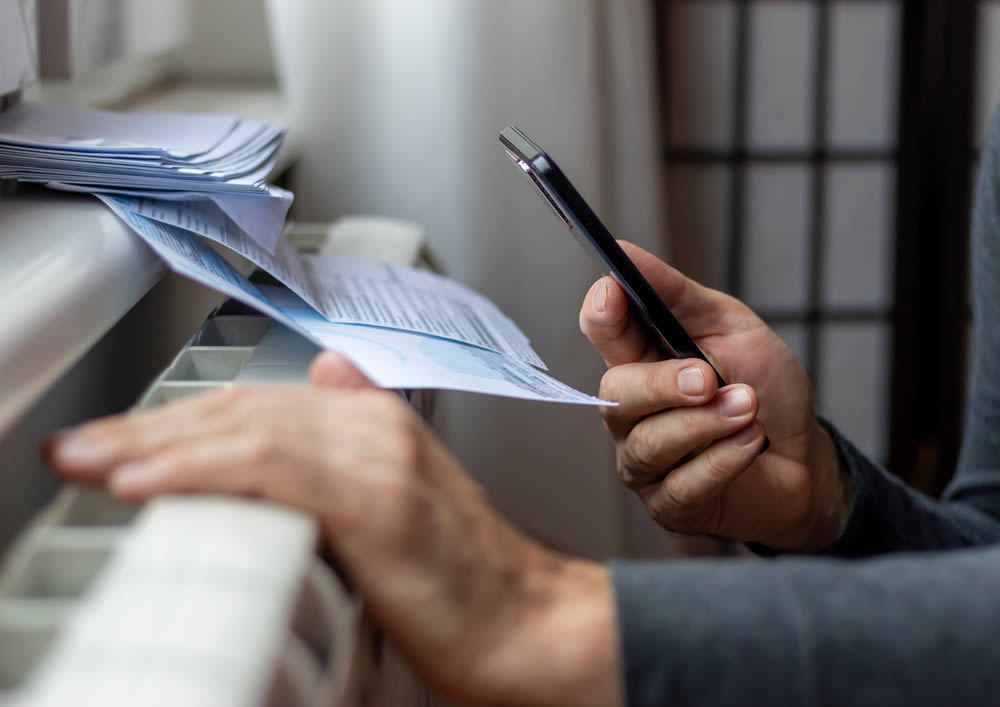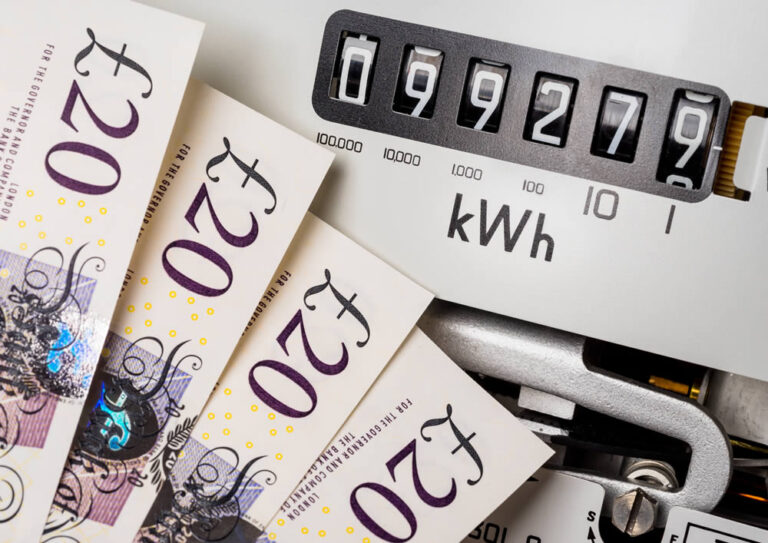Energy is essential for basic living, but the struggle to keep on the lights and heating has become an all too familiar tale. The reasons behind the difficulty in paying energy bills are as diverse as the individuals facing them. One prominent factor is the ever-increasing cost of energy.
High inflation, economic uncertainty and job instability contribute significantly to the challenge. Individuals facing job losses, salary cuts, or unexpected financial crises are often left with tough choices to make. For example, the decision between putting food on the table and keeping the heater running.

For some, energy bills become a silent stressor, accumulating in the background until it transforms into a mountain of debt. The fear of disconnection or payment meters looms large, adding an emotional toll to an already stressful situation.
The energy market in the UK is complex, and understanding complex energy tariffs, surcharges, and fluctuating rates can be daunting. This lack of transparency often leads to high bills, catching consumers off guard and deepening their financial woes.
Addressing the challenges posed by energy bills requires a disciplined approach. There are some simple measures to help reduce gas and electric bills:
- Shop around for the best deal and switch tariffs.
- Invest in energy-efficient appliances. They can have a higher upfront cost, but they save money in the long run by consuming less electricity.
- Replace traditional bulbs with LED lights. They use significantly less energy and last longer, reducing the frequency of replacements.
- Many electronic devices consume energy even when turned off. Unplug chargers, TVs, computers, and other electronics when not in use to prevent “phantom” energy consumption.
- Install programmable thermostats to regulate heating and cooling based on your schedule.
- Ensure your home is well-insulated and seal any drafts. This helps maintain a consistent temperature, reducing the workload on heating systems.
- Adopt energy-conscious habits. Turn off lights when leaving a room, use natural light whenever possible, and avoid keeping electronic devices on standby. Small changes in behavior can add up to significant energy savings over time.
- Lower the temperature of your water heater. Additionally, consider insulating the water heater and pipes to reduce heat loss.
- Strategically plant trees and shrubs around your home to provide shade in the summer and windbreaks in the winter. This can help regulate indoor temperatures, reducing the need for heating and cooling.
- Adjust the settings on your appliances and electronics to energy-saving modes. Many devices, including computers and televisions, have power-saving features that can be activated.
- Install low-flow showerheads and faucets to reduce water consumption. Heating water for showers can be a significant contributor to energy bills.
- Use energy-efficient cooking methods. Match the size of your pots and pans to the size of the burners, and consider using a microwave or toaster oven for smaller meals. Ovens consume lots of energy and there are smaller alternatives such as air-fryers.
- Wash clothes with cold water whenever possible and line-dry instead of using a dryer. Clean the lint filter in your dryer regularly to maintain efficiency. Many modern detergents can work at cooler temperatures.
- Encourage everyone in your household to be mindful of energy consumption. Educate family members on the importance of turning off lights and appliances when not needed, fostering a collective effort to save energy.
- Use draught excluders for doors and windows to prevent cold air from entering your home during the winter and warm air from escaping.
- Consider installing a rainwater harvesting system to collect rainwater for non drinking uses like watering plants. This reduces the demand for water.
- Invest in curtains or blinds designed to insulate your home. Closing them at night can help retain heat in the winter and block out sunlight in the summer, reducing the need for heating or cooling.
By implementing these measures, you not only reduce your energy bills but also contribute to a more sustainable and environmentally friendly lifestyle. Every small change adds up to significant savings over time! If you are living in rented or council accommodation, ask your landlord to carry out some of the improvements listed above.
As we continue our conversations with clients struggling under the burden of unmanageable debts, it becomes increasingly evident that the energy cost crisis can affect anyone, regardless of their financial standing. Having the right to warmth and light is one of the basic necessities of life.
As people struggle we have heard how some turned to using credit cards or loans to stay on top of rising costs. This not only just postpones the cost to another day but also with the addition of interest on top often makes the situation worse.
Here at The Debt Advisor, we are able to discuss your financial situation with you and assist in putting together an affordable budget. We offer solutions to support you with any debt problems you may have. Click here to leave your details for a free, no pressure chat. It’s 100% confidential and you can see how we might help.
Act now before the situation gets worse.

